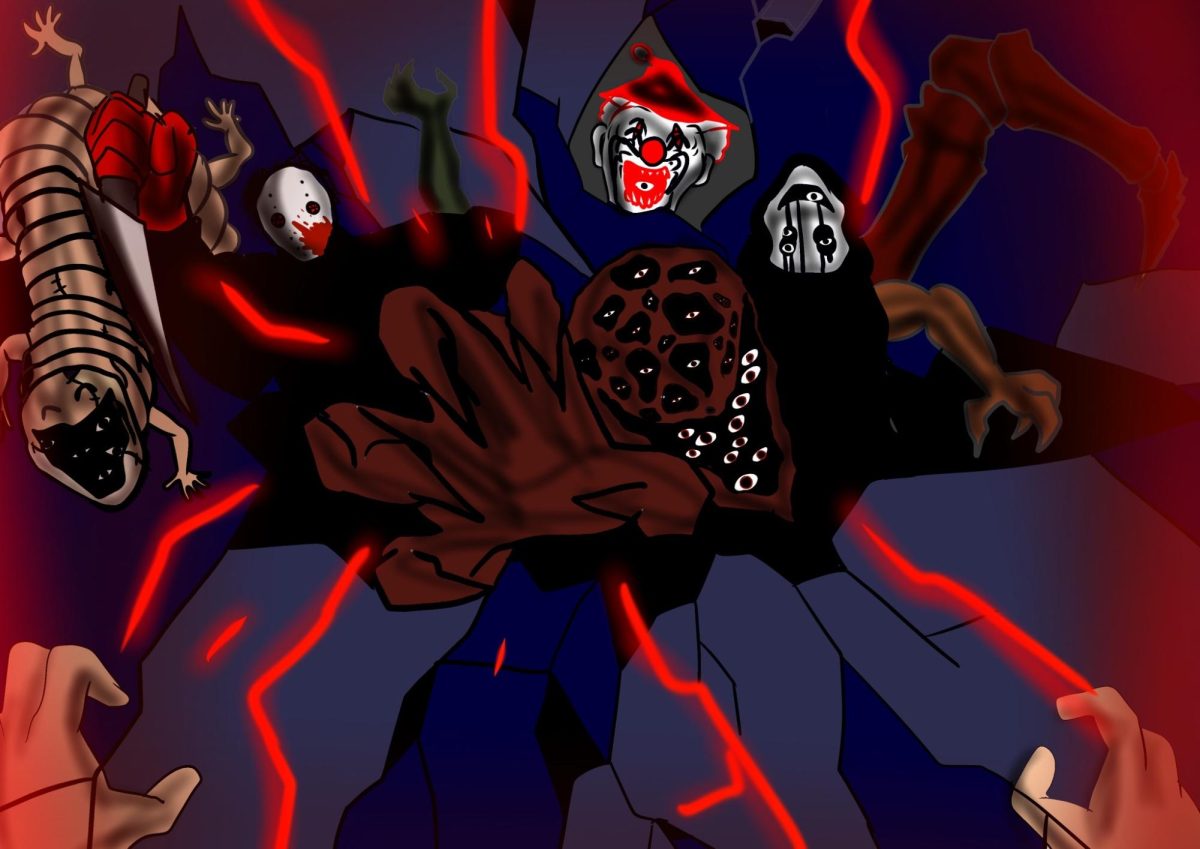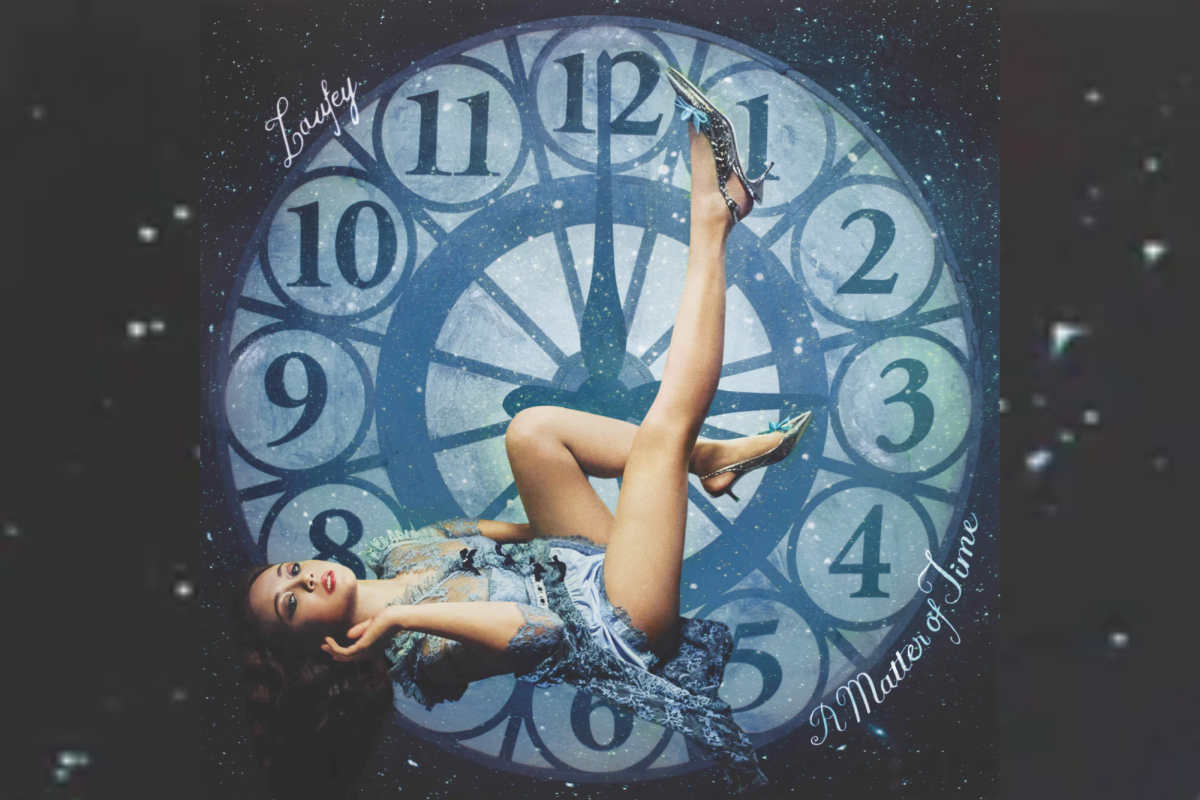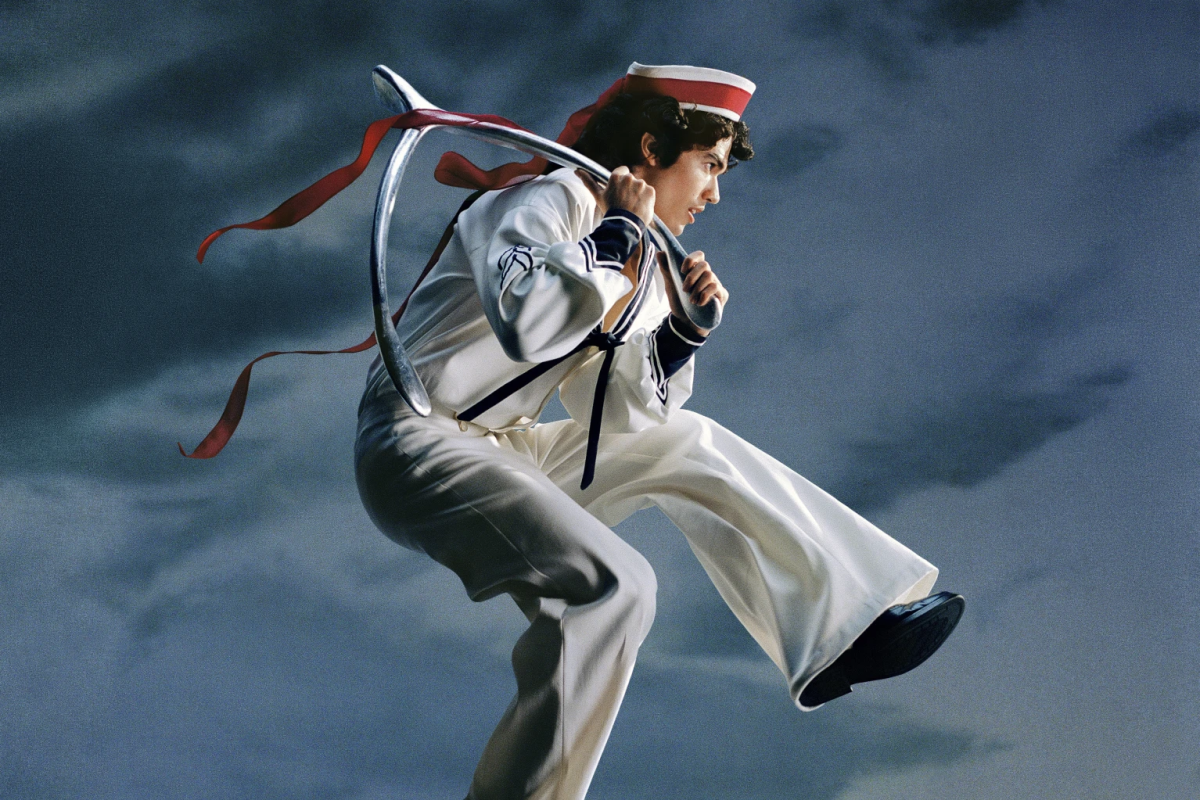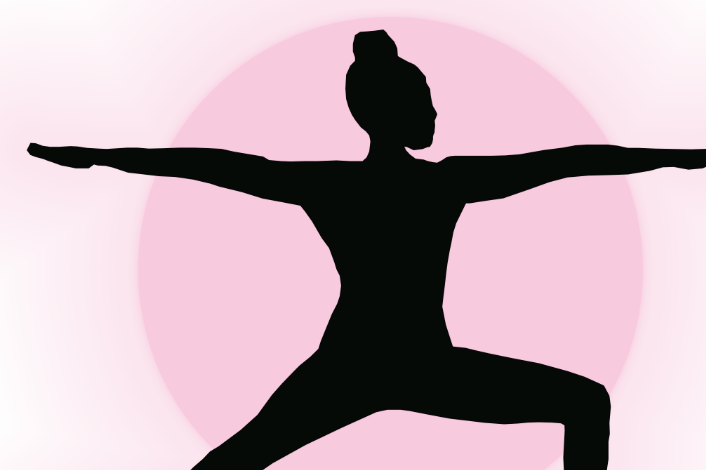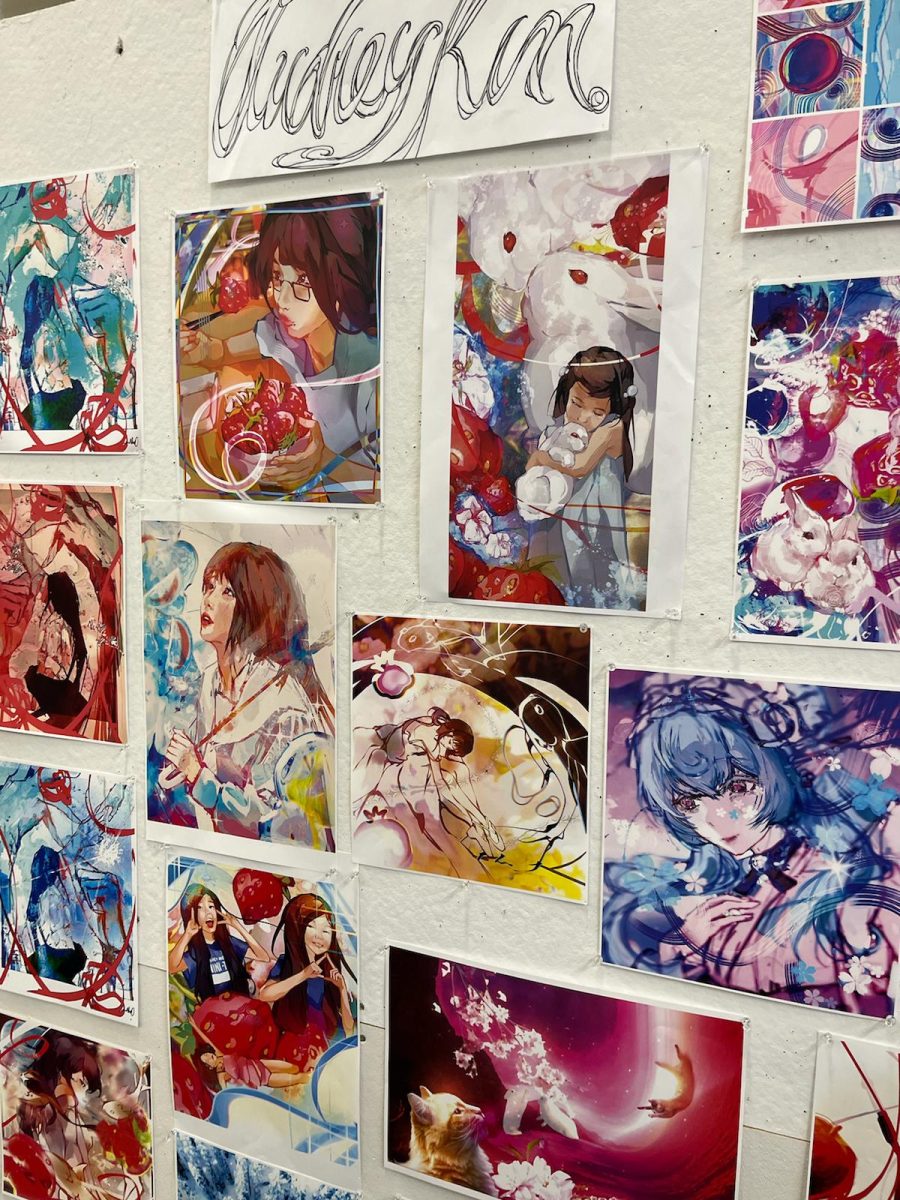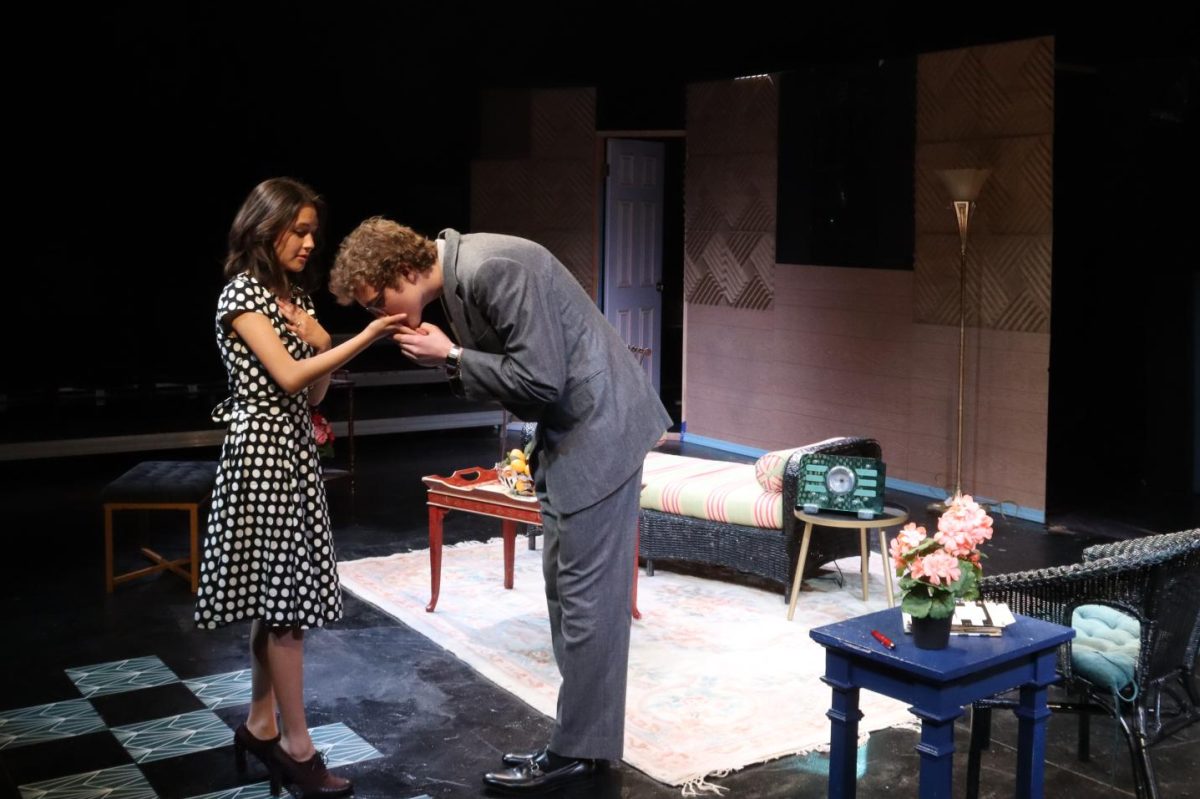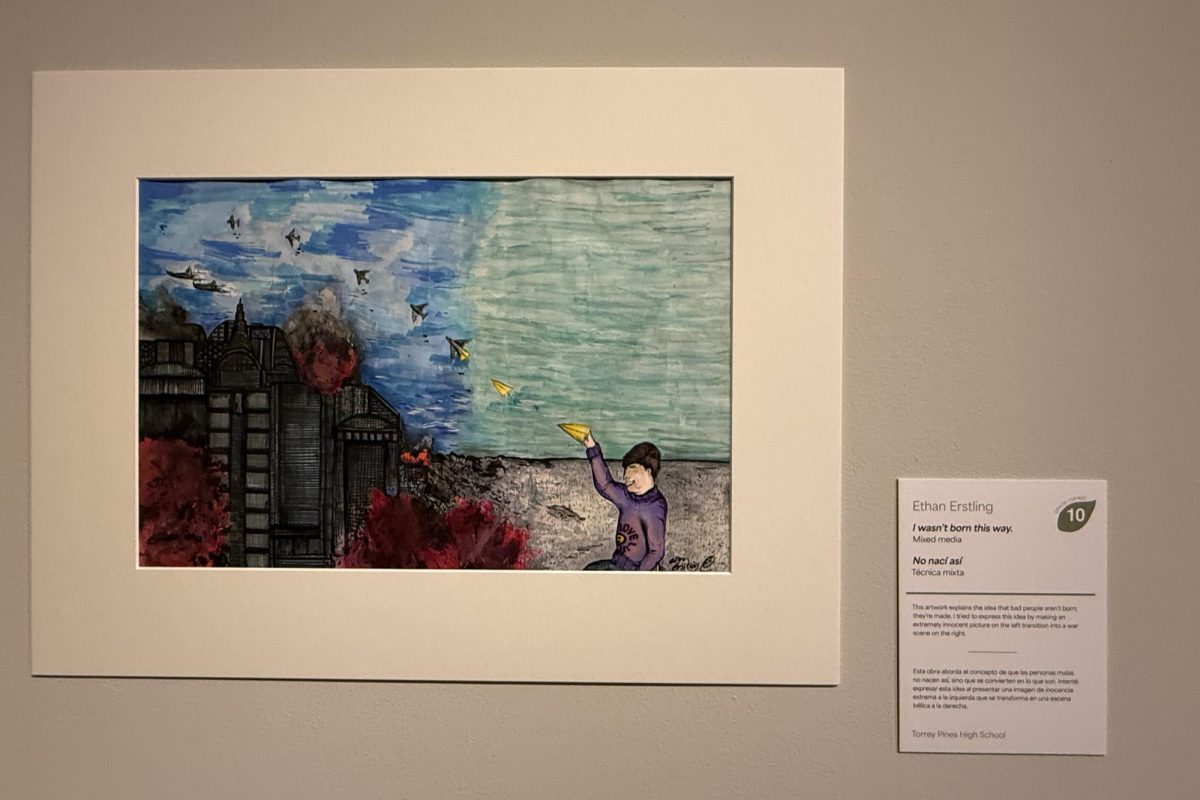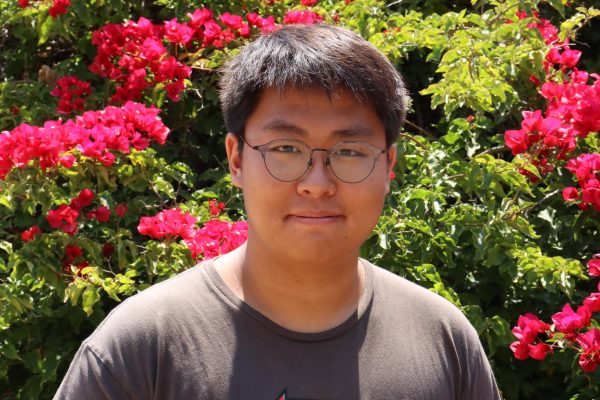Fear. Adrenaline. The thrill of the unknown. This is a familiar snapshot of horror. Heart beating. Pulse racing. Shaking hands clutching the edge of the seat. This is the rhythm of fear. But for horror fans, there’s more. The why. The how. And what that says about us.
“The horror genre is its ability to instill fear into the audience, which makes it more of an experience,” Film and Society teacher Catherine Mintz said.
Mintz creates this experience in her classroom as she experiments with integrating horror into the Film and Society curriculum, particularly as Halloween approaches.
“We just watched ‘Psycho,’ a 1960s horror film,” Mintz said. “The struggle is that a lot of [horror movies] have an R rating, and so it makes it difficult to bring something in, because I have limitations on what I can show.”
For Mintz, horror offers a way to study how society has shifted throughout history.
“We look at different decades and what people were really excited about,” Mintz said. “It either reflected what society was interested in at the time, or it also reflected people’s need of an escape from high pressure, high stresses happening in society at the time. Horror now looks very different from horror in the ’80s.”
This is attributed to the concept of “relevance,” one of the three recognized appeals of horror entertainment alongside tension and unrealism. Originally identified by psychologist Glenn D. Walters in a 2004 paper, this relevance can exist on a “universal, cultural, subgroup and personal” level.
To Nolan Greer (12), a student from Mintz’s Film and Society class last year, “Psycho” is a prime example of how the horror genre has evolved.
“The guy at the motel is a psycho murderer, and so the horror then is a lot different from today’s world,” Greer said. “[There are] a lot more monsters and more outlandish ideas compared to what used to be on the big screen, both because of our technology and our advances in film, but also our storytelling.”
To Greer, the horror genre is more than fear — it’s a medium that explores human behavior. For this reason, Greer gravitates towards analog and psychological horror, finding appeal in pieces that “play off the theater of the mind.”
“Horror builds more on your senses and what you can’t see, and the feelings that can develop within you that can cause discomfort,” Greer said.
Unlike mainstream horror, which Greer feels has become predictable and often “mindless,” “indie,” or independent psychological horror requires viewers to think.
“It’s making you use your brain to figure out what’s happening … compared to the movie force-feeding you everything and trying to ‘get you’ that way,” Greer said.
Greer sees horror in a contemplative light, especially as he is interested in becoming a film director.
“‘We write what we know,’ that’s something one of my teachers said a while ago,” Greer said. “I took that to heart because it’s true within any form of media that anyone creates … Within the horror genre, it explores deep concepts, like of death and why we’re afraid of it, or religion and how it can be both a good and bad thing. With those concepts and ideas in mind, I can carry those and use that to see other people’s behaviors.”
Cade Barber (11), an aspiring filmmaker, also takes this reflective approach to horror, describing it as “a study, rather than an entertainment experience.”
“[When watching horror] I feel one with the piece,” Barber said. “I don’t feel like it’s acting out against me. I feel like it’s meditative, and my mind is open. I’m digesting the aspects of the film and I’m observing all the techniques that the filmmaker is incorporating into the project … I just have so much appreciation for good, complex horror.”
He often analyzes symbolic elements in horror, doing additional research and forming theories after watching.
“Horror has become so much more complex in many ways in modern times,” Barber said. “My favorite director, Jordan Peele, he’s brought in talks of social issues into his work … and that’s really inspiring because it can show how horror is a messenger of these certain topics.”
Barber noted that Peele’s “Us” explores the persistence of the American Dream in present-day society, while “Nope” focuses on the exploitation of people and animals, topics particularly relevant to today’s world.
Like Greer, Barber’s affinity for complex horror has led to a preference for psychological horror over other subgenres like slasher and paranormal horror.
“I also like more humanistic horror, in the way that the monster or the big bad is something natural rather than supernatural,” Barber said. “And I feel like human activity and human nature can sometimes be the scariest and most intriguing aspect of horror.”
Olivia Ryu (11), who is considering a potential career in psychology, takes particular note of psychological elements in horror content.
“It’s such a fascinating topic to see how the human mind functions with different experiences,” Ryu said.
Psychological horror provides an alternative for fans like Ryu, who are averse to jumpscares and scary images, but still want to explore the genre.
These student preferences are indicative of larger trends in contemporary tastes. A 2022 poll by YouGov showed that demonic possession, slasher and gore are the least favored horror subgenres among Americans, while psychological horror is the most liked subgenre.
However, according to YouGov, horror is also the most divisive movie genre in American society. This divisiveness can, for one, be attributed to horror’s polarizing nature, as well as the large amount of styles and forms it takes.
“I really respect horror for being a really diverse genre,” Barber said. “It’s most likely the most diverse genre there is in film or media in general.”
Not every horror fan starts out with a love for the genre. Greer, for example, grew up reading “Goosebumps” books and watching the episodes with his dad.
“[My dad] loves movies, and he kind of fell in love with the horror genre because there’s just a lot to explore,” Greer said. “A lot of times with most other genres of content, they follow formulas that are repeated over and over again … similar story arcs, which horror oftentimes can break.”
However, he did not immediately share his dad’s love for horror after these first experiences; in fact, the episodes “freaked [him] out.”
“What’s interesting about fear is that, as humans, we have a spectrum of emotions,” Greer said. “And so for me, I grew up struggling with scary concepts and the idea of death and things like that … but then over time, [horror] became more of … a place in which I can explore the nature of humanity and who we are as people, deeper than what most pieces of fiction show.”
Barber had similar early experiences with the genre.
“There’s been a lot of things in my early childhood that were unconventionally scary and caused me to have nightmares,” Barber said. “But as I’ve grown up and matured, I’ve become way more desensitized to these things, and then I’ve taken those things that I find frightening and scary and turned them into creative endeavors.”
Barber writes screenplays for “hypothetical horror pieces” and hopes to start projects in the near future. He is particularly interested in adapting “I Have No Mouth, and I Must Scream,” a post-apocalyptic science fiction horror story by Harlan Ellison.
“It’s like I have this studio in my head of these scenarios and projects that are brought to life in my imagination, and that I hope to bring to a screen,” Barber said.
Even as a fan of horror, Mintz admits that the genre sometimes unsettles her.
“There’s certain horror films that if they’re too true, they give me nightmares and they definitely freak me out,” Mintz said.
As the film industry expands, and horror franchises and independent films continue to make their impact, fans also embrace other formats of horror content such as books and video games. Greer usually prefers to watch movies but recognizes the value of horror as seen through each format.
“[Horror formats] all have their different realms,” Greer said. “For example, in books, it plays more on scary concepts. I was reading Stephen King’s ‘It,’ and it’s not super scary, but when you start to think about the idea that there’s something that could be in the drain, and it plays off of your fears, and you have to learn how to be strong and share those fears, that is an interesting concept to explore which can make it look scary.”
Video games are Ryu’s preferred method of consuming horror content due to the unique perspective it puts the player in.
“With video games, you’re actually experiencing the horror yourself,” Ryu said. “You’re controlling the character, even if the character isn’t you, necessarily. For a movie, you’re watching. You’re only an observer, you’re not actually interacting with anything.”
Barber, who also prefers horror movies, noted this as well.
“I have a lot of respect for horror video games … because they have a lot of thematic elements and it’s really more immersive than a traditional TV show or movie,” Barber said.
For Mintz, horror is also a social experience.
“I think [people] just love to clench onto their friend or their boyfriend, and they want to yell and hide their face with popcorn flying everywhere because it’s an experience, and even though it’s scary, it makes it fun,” Mintz said.
Barber, who enjoys watching horror movies with friends, agreed.
“Watching a good horror movie with friends is just a really fun experience because you all share that adrenaline,” Barber said. “It’s like being on a roller coaster. There’s tensions and there’s drops and you’re all in it together.”
Greer, in contrast, finds that consuming horror content alone creates a different kind of experience.
“When you watch [horror movies] with other people, you have to be able to know what experience you’re getting yourself into,” Greer said. “If you’re [watching] with friends, you have to expect everyone to just be shooting down everything that’s happening in the movie, compared to actually getting involved in the universe.”
For Ryu, it often depends on the nature of the game. Playing with friends can reduce fear and make the experience more fun, however, there are times when playing in a group is less ideal.
“Some horror games are meant to be experienced alone because it’s about putting your own feelings into the game,” Ryu said. “And I feel like the ones that you should play alone are the ones where your choices matter a lot.”
At its core, horror offers a spectrum of experiences. Dead silent and cacophonous. Deeply personal and uniquely social. Terrifyingly unknown and hauntingly familiar. It is this range that compels so-called horror fanatics to seek out goosebumps, pounding hearts, adrenaline surges and everything beyond.
“I think that horror, unlike other genres, has many purposes, and one of those purposes is obviously just to scare you or make you feel disturbed and unsettled,” Barber said. “Primitively, as people, our survival instincts respond to those stimuli … and I think that’s why people are so drawn to horror, for the feeling and also for the togetherness that they have with people.”


